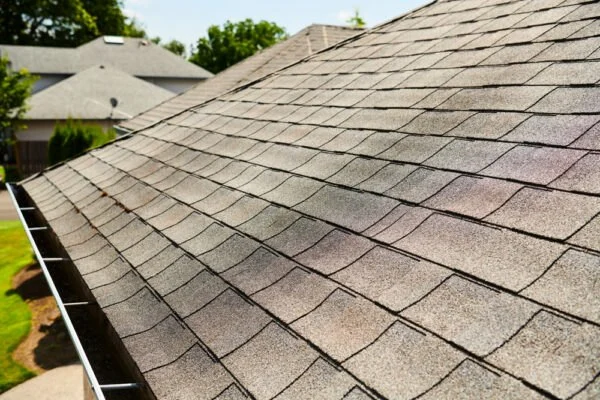
- 1. Introduction to Roofing with Algae Resistance
- 2. Factors Influencing the Cost of a New Roof
- 3. Benefits of Algae Resistance Warranty
- 4. Popular Roofing Materials with Algae Resistance
- 5. Conclusion: Making the Right Choice for Your Roof
1. Introduction to Roofing with Algae Resistance
When it comes to roofing, longevity and protection are crucial factors homeowners consider when making decisions. One feature that is becoming increasingly popular is enhanced algae resistance. Algae growth, especially in humid climates, can cause unsightly stains on your roof, leading to the need for frequent cleaning or, in some cases, replacement. To combat this issue, roofing manufacturers have developed roofing materials with algae resistance warranties, offering homeowners a long-term solution to keep their roofs looking new and functioning efficiently.
In this article, we will explore the cost of installing a new roof with an enhanced algae resistance warranty and the benefits this added feature can bring to your home. Understanding the full scope of these roofs and the various options available will help you make a more informed decision when planning your next roofing project.
2. Factors Influencing the Cost of a New Roof
When considering a new roof, the cost can vary significantly depending on several factors. Roofing materials, labor, the complexity of the installation, and the added features, like algae resistance, all play a role in determining the overall price of the project.
The following factors can influence the cost of a roof with enhanced algae resistance:
- Roofing Material: Different materials, such as asphalt shingles, metal roofing, and tiles, have varying costs. Roofing materials specifically designed to resist algae growth, like certain types of shingles with copper or zinc coating, can be slightly more expensive due to the added protection.
- Roof Size and Shape: The larger and more complex your roof, the higher the cost. Roofs with multiple angles, dormers, or a steeper pitch can take longer to install, adding to the labor costs.
- Labor Costs: The region in which you live plays a big role in labor costs. Highly skilled professionals may charge more, especially if additional steps, such as removing an old roof, are involved.
- Additional Features: Enhanced algae resistance can add to the overall cost. The algae-resistant coating or treatment adds value by reducing long-term maintenance and extending the lifespan of your roof.
On average, the cost of a roof with algae resistance warranty may range from $7,000 to $15,000, depending on the size of the roof, materials used, and the complexity of the installation. While this may be a higher upfront cost, it can save money in the long run by reducing maintenance costs and extending the lifespan of your roof.
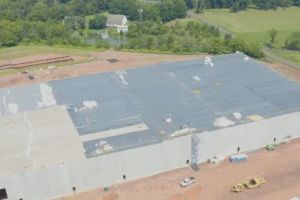
Vital Assets Waterproofing Solutions
3477 Corporate Pkwy Suite 100, Center Valley, PA 18034, USA
3. Benefits of Algae Resistance Warranty
Investing in a roofing system with enhanced algae resistance provides numerous benefits that go beyond just the aesthetic appeal of a clean roof. Here are some key advantages:
- Reduced Maintenance Costs: Roofs with algae resistance require less frequent cleaning, saving you time and money in maintenance. Algae-resistant shingles have built-in coatings that prevent the growth of algae, keeping your roof cleaner for longer periods.
- Improved Longevity: Algae can cause damage to roofing materials over time, leading to discoloration, rot, and even structural damage. Algae-resistant roofs can help prevent this deterioration, thus extending the lifespan of your roof.
- Better Aesthetics: A roof free from algae streaks and stains looks better, increasing your home's curb appeal. If you plan on selling your home in the future, an algae-resistant roof can make your property more attractive to potential buyers.
- Increased Home Value: Homes with well-maintained, algae-resistant roofs tend to have higher resale values. Potential buyers will appreciate the longevity and the reduced need for roof maintenance.
4. Popular Roofing Materials with Algae Resistance
When selecting a roof with enhanced algae resistance, homeowners can choose from various materials, each offering different benefits. Some of the most popular roofing materials that come with algae resistance warranties include:
- Asphalt Shingles: One of the most common roofing materials, asphalt shingles, can be found with algae-resistant properties. Many manufacturers add zinc or copper granules to their shingles to prevent algae growth, making them a popular choice for homeowners seeking a budget-friendly, effective solution.
- Metal Roofing: Metal roofs, known for their durability and energy efficiency, can also come with algae-resistant coatings. These roofs are highly resistant to algae and other environmental factors, making them a great long-term investment.
- Clay and Concrete Tiles: Tile roofs are naturally resistant to algae growth. Additionally, some tile roofs come with algae-resistant coatings or treatments that can further enhance their resistance and longevity.
Choosing the right roofing material for your home depends on your budget, desired aesthetic, and the local climate. It's important to consult with a roofing professional to determine which material best suits your needs while ensuring you get the most value from an algae-resistant warranty.
5. Conclusion: Making the Right Choice for Your Roof
When investing in a new roof, adding an enhanced algae resistance warranty can provide long-term benefits in terms of maintenance, appearance, and the overall lifespan of your roofing system. While the initial cost may be higher, the advantages far outweigh the expenses over time, especially considering the reduced need for repairs and cleaning.
If you're looking for reliable roofing solutions that offer both performance and protection, visit BeachCo Roofing Hub for more information on roofing materials, maintenance tips, and professional services to ensure your roof lasts for years to come.
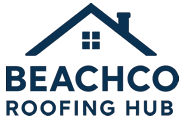
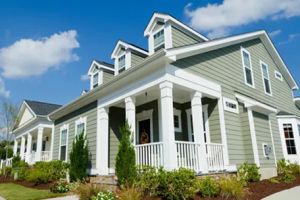

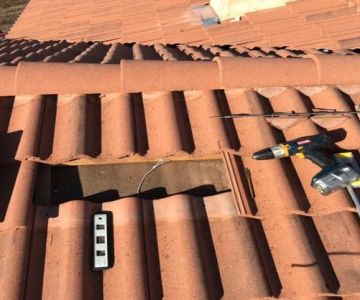
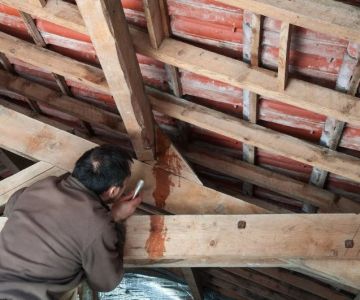
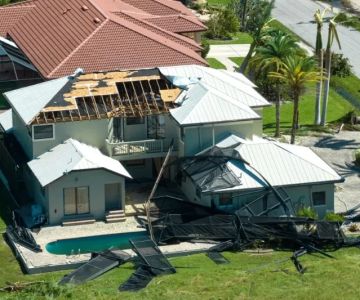
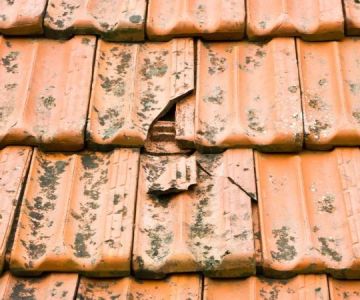
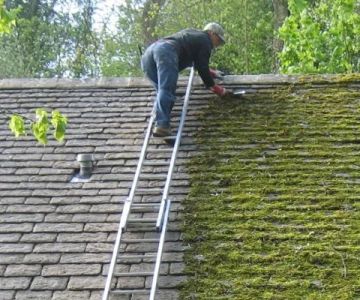
 Tri-State the Roofers4.0 (4 reviews)
Tri-State the Roofers4.0 (4 reviews)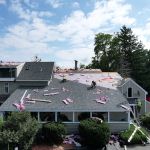 Affordable Roofing / Gutters5.0 (25 reviews)
Affordable Roofing / Gutters5.0 (25 reviews)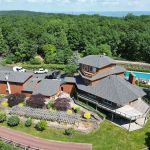 570 New Roof5.0 (6 reviews)
570 New Roof5.0 (6 reviews)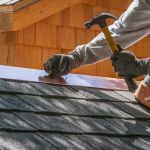 Woof Roofing5.0 (2 reviews)
Woof Roofing5.0 (2 reviews) Steve & Son Home Improvements4.0 (12 reviews)
Steve & Son Home Improvements4.0 (12 reviews) RJ John Roofing5.0 (4 reviews)
RJ John Roofing5.0 (4 reviews)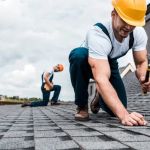 How to Choose a Roofing Contractor That Handles Insurance Claims – Expert Tips
How to Choose a Roofing Contractor That Handles Insurance Claims – Expert Tips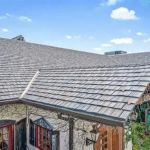 The Cost of a New Roof with a Class 4 Impact Rating and Class A Fire Rating: Everything You Need to Know
The Cost of a New Roof with a Class 4 Impact Rating and Class A Fire Rating: Everything You Need to Know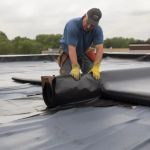 Flat Roof Repair: Identifying Issues and Choosing the Right Method
Flat Roof Repair: Identifying Issues and Choosing the Right Method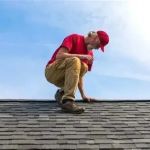 What is a Roofing System Health Report? A Proactive Assessment Tool
What is a Roofing System Health Report? A Proactive Assessment Tool Roof Snow Load Calculation: How to Know if Your Roof is at Risk
Roof Snow Load Calculation: How to Know if Your Roof is at Risk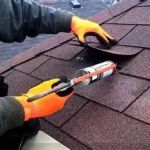 How to Repair a Roof Leak in a Building with a Slate Roof
How to Repair a Roof Leak in a Building with a Slate Roof